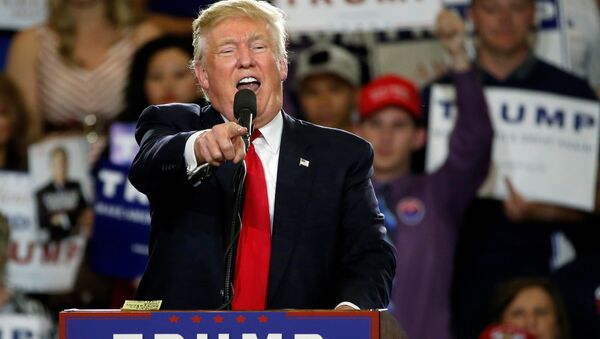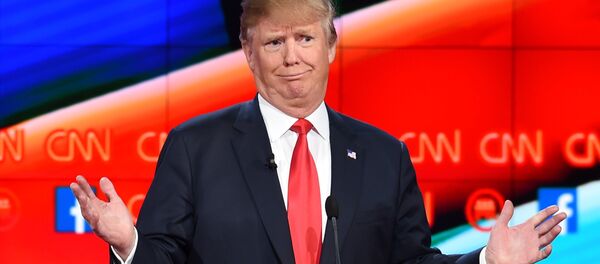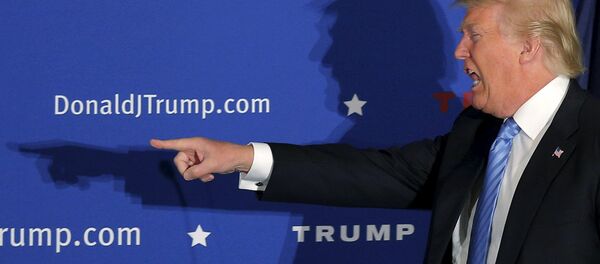"Donald Trump seems to understand something that the major establishment media can never comprehend: They are hated by the vast majority of Americans," Executive Intelligence Review (EIR) senior editor Jeff Steinberg said on Tuesday.
Trump had clashed repeatedly with the mainstream and elite US media organizations throughout his year-long campaign and his popularity had steadily risen after every controversy, Steinberg pointed out.
"Trump has managed to perfect the art of sound bite provocation and has gotten hundreds of millions of dollars in free advertising out of it. Will it win him the presidency? Very hard to say," he acknowledged.
However, Trump had repeatedly shown himself to be far more aware of, sympathetic to and responsive towards the concerns of millions of ordinary Americans than the main media organizations or than the political establishments of the two major parties, Steinberg added.
Trump "is more attuned to the real mood of the population — all age brackets, income brackets and demographics — than either the mainstream media or the other rival candidates," he said.
There were previous examples where political candidates had succeeded in winning national office and popular support by attacking the US media as privileged, arrogant and out of touch with ordinary people, Steinberg recalled.
"Remember how hysterical the mainstream media was over Spiro Agnew's attacks on the media on behalf of Nixon," he said.
Agnew was US vice president from 1969 to 1973 under President Richard Nixon until he was forced to resign for failing to report some received income.
"Populist Trump can say he is continuing to fight the unfair political and media elite with this move," he said.
However, Eland cautioned that it might not prove as effective with mainstream and independent voters as it had with conservative Republicans
"Of course, that line worked better in the Republican primaries than it is likely to play in the general election," he continued.
The move also suggested that Trump was rejecting pressure from Republican political strategists to sound more dignified and moderate in his public comments, Eland observed.
"This move seems to be another illustration that he doesn't seem to be pivoting — or can't by nature — to become a less confrontational and more conventional candidate for the general election," he said.
Eland also noted that previous US presidents had occasionally publicly attacked individual reporters or news organizations by name.
President George W. Bush once ejected a New York Times reporter off Air Force One when he didn't like the coverage, he noted.
Trump was critical of the Washington Post for claiming that Trump connected President Obama to the Orlando massacre.



